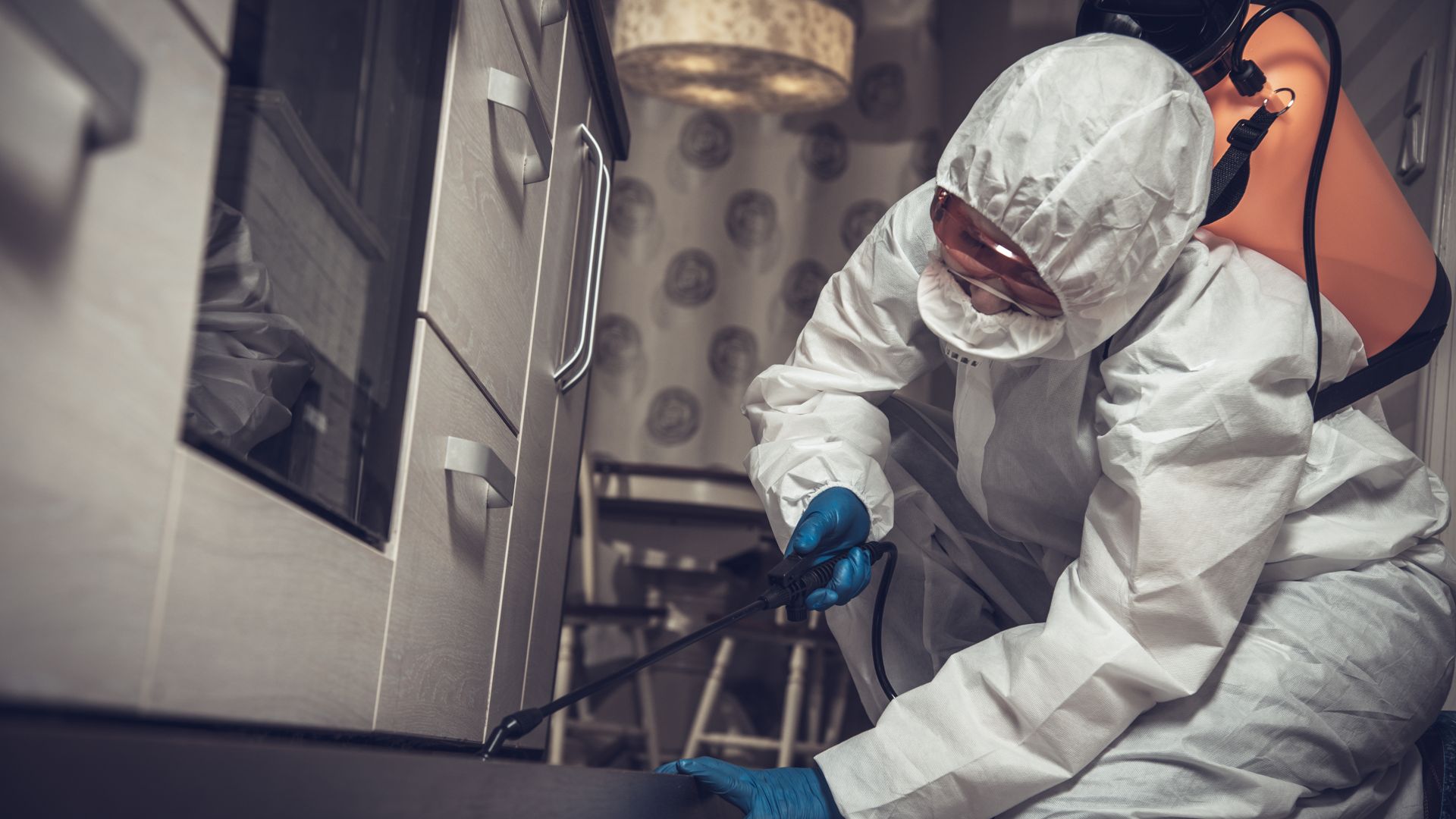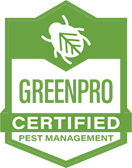
What It Takes To Get Rid Of A Cockroach Infestation In Your Roseville Home
Cockroaches are resilient, invasive, and one of Roseville's most common home invaders. So, what does it take to get rid of cockroaches in your home?
Here's what Roseville homeowners should know about identifying the signs of cockroaches, why it's dangerous to have them in your home, why DIY cockroach control doesn't work, and what pest control in Roseville can do to help.
How To Tell If You Have A Cockroach Problem In Your House
.2404181020550.jpg)
Just like people, cockroaches love Roseville's sunny weather and palm trees, but that doesn't mean they're welcome in your home. The first step to understanding if you have cockroaches in your home is knowing what they look like. For local residents, you're most likely to encounter one of these five types of roaches in Roseville:
- American cockroaches: Growing up to three inches in length, American cockroaches also go by the name "water bug" and "palmetto bug." They have reddish-brown bodies and a figure eight-shaped pattern on the back of their heads, making them easy to identify.
- German cockroaches: German cockroaches grow just over half an inch long and are light brown to tan with dark, horizontal bands that run behind their heads. They're also the most common house-infesting roach in the country and California.
- Turkestan cockroaches: Also known as the rusty red roach, Turkestan cockroaches grow to be about an inch long and primarily live outside but may occasionally venture indoors.
- Oriental cockroaches: Oriental cockroaches, or Asian cockroaches, may get mistaken for German roaches, but they tend to be darker, glossier, stinkier, and larger at about an inch in length.
- Brown-banded cockroaches: Brown-banded cockroaches are another type that doesn't mind living outside but may wander in because of warmth or humidity. As their name suggests, these roaches have two brown bands that encircle their bodies – and a full set of wings. When they're inside your home, brown-banded roaches are especially fond of laying their eggs underneath furniture. They are some of the smallest roaches, with most growing under half an inch in length.
Cockroaches have a reputation for being resilient, and they certainly live up to it – not only can they still survive over a week completely headless, but they've even been known to survive nuclear radiation.
What are the signs of cockroaches in your Roseville home? Besides identifying live bugs if you see them, there are plenty of other signs of a cockroach infestation to look out for, such as:
- Droppings: Even if you don't see live roaches, you may still find evidence of their presence, like their droppings. Cockroach droppings tend to look unique and may resemble tiny specks of pepper, coffee grounds, or even dirt. Droppings tend to be located around areas of high roach activity.
- Finding dead roaches: While living cockroaches may be nocturnal and most active at night, dead roaches are often easier to find. If you do find a dead roach, you may be able to identify whether you've got German cockroaches based on its markings and size.
- Musty odor: It's not always obvious with small or early cockroach infestations, but these pests tend to leave behind a strong, musty odor when they invade homes. The bigger the infestation is, the more prominent the smell usually becomes.
- Discarded egg casings: Cockroaches lay their eggs in ootheca, or egg casings. Each casing can hold close to forty roach eggs, and once they hatch, the casing gets discarded.
You may still see live bugs, but remember that cockroaches are nocturnal. If you do see these pests, it's likely because there's overcrowding, or you've caught them coming out of their hiding places at night.


Ensuring your home and business are pest-free, explore our different service areas to see if we're local to you! Give us a call to get started!
Why It's Dangerous To Have Roaches In Your Home
While no pest is sanitary or healthy to have in your home, cockroaches can be especially dangerous for Roseville homes because they pick up bacteria and can trigger allergies.
When they are not in your home, cockroaches will frequently go to unsanitary places with an abundance of bacteria. They have a preference for eating decaying organic matter, so they tend to spend a lot of time in sewers, drain pipes, and garbage cans. Not only do they like to reproduce in these conditions, but they also can pick up harmful pathogens and bacteria. Some of the most common bacteria spread by German roaches include salmonellosis, dysentery, staphylococcus, and streptococcus.
In addition to spreading bacteria and disease, German roaches can also trigger allergies and asthma symptoms in many people. These allergens get introduced into the air when they contaminate your home with their saliva, shed skin, and fecal matter. Again as infestations grow, so do these symptoms.
Do cockroaches bite? Cockroaches aren't known for biting people or being aggressive, but their spiny legs sometimes scratch people. Cockroaches aren't aggressive or likely to attack, but if you try to pick up a roach, these pests may scratch you in an attempt to get away. Cockroaches can't spread diseases like some pests can, but scratching you may be another way they're able to contaminate you with bacteria beyond contaminating your food and food preparation areas.
-
Same-Day & Emergency Services AvailableWhen possible, we can provide prompt assistance to help with your pest solution needs.
-
Local, Family Owned & OperatedRooted in our local communities, we know the best solutions for the pests in our unique areas.
-
We Offer Organic Treatment OptionsEmbrace a eco-friendly approach with our range of sustainable solutions for your needs.
-
45+ Years of Industry ExperienceTrust in our seasoned knowledge and proven track record spanning over four decades.
Why Do-It-Yourself Cockroach Control Often Fails
A lot of homeowners may initially try and tackle a cockroach problem on their own, but home remedies and DIY products are rarely effective – for a couple of reasons. A popular solution, cockroach traps, may trap some of your roaches, but it won't stop the remaining infestation from breeding or new roaches from coming inside.
Over the counter pesticides are another common DIY tactic, but these sprays rarely get the job done. Cockroaches are naturally resistant to a lot of pesticides, and spraying too much of these products could be toxic to you, your family, or your pets.
How do cockroaches get inside your home? Not only are they resilient, but cockroaches are extremely resourceful, too – especially when it comes to getting inside your home. There are several ways that cockroaches use to gain access to your home, such as:
- Drains and sewers: Many cockroach species, like American roaches, don't mind hanging out in unsanitary locations like drains and sewers – and they may even use these areas to get inside your home. If your sewer line or drain is experiencing repairs, displaced cockroaches may wander inside as a result. They can use sewer lines to crawl in and then emerge into your home through a floor drain.
- Plumbing and pipes: Roaches often use plumbing lines and pipes to crawl between neighboring apartments and townhouses if you share utility lines or walls with someone else.
- Boxes and bags: In some cases, cockroaches may end up in your home because you've brought them inside. Like bed bugs, roaches aren't shy about hitching a ride on luggage, bags, or boxes to get inside your home. Before bringing in groceries or secondhand items, it's always a good idea to check your belongings for signs of cockroaches.
- Cracks and crevices: If they can't get inside through plumbing lines or sewer lines, cockroaches can also use cracks and crevices in your home's foundation to access your home.
Once they've made it inside your home, cockroaches are far from easy to eliminate. Since they're excellent hiders (and most active at night), their presence can go undetected for months.
Even if your home is clean of excess food or moisture problems, cockroaches are crafty enough to find food on their own and thrive in even the most hostile conditions.
And once you've got them in your Roseville home, cockroaches aren't so eager to leave. Cockroaches won't go away on their own. Not only will roaches hide in your walls or other hard-to-reach spots, but they reproduce quickly – which means it's almost impossible for homeowners to stop a growing infestation on their own.
DIY cockroach home remedies may be able to repel cockroaches or force them into hiding temporarily, but there's no guarantee that these solutions will permanently solve the problem. Some solutions may even put your pets or small children at risk, depending on the location and how they're applied.
Rather than waste your time with these home remedies that may or may not work to solve the cockroach infestation in your Roseville home, you're better off relying on the pros to deal with massive cockroaches.
Call The Pros To Completely Get Rid Of Roaches
DIY methods may seem promising, but they can put your family or pets at risk and rarely work as well as you want them to. If you're dealing with American, German, or oriental cockroaches in your Roseville home, you're better off sticking to the professionals – and that includes those of us at Neighborly Pest Management.
With several years of experience in the pest management business, we've seen our fair share of roaches, and we're committed to permanent, guaranteed results. Whether you're looking to learn more or you're seeing signs of a roach infestation in your Roseville home, it's time to call us at Neighborly Pest Management to find out how we can help.

Hear From Our Happy Customers
At Neighborly Pest Management, your satisfaction is our priority! See for yourself what our customers have to say about working with us.
-
“We’ve used Neighborly for a couple of years and have had outstanding service consistently throughout. Doug is mindful of our pets and kid's safety as well, making sure that our home is a safe environment for everyone except the pests!”- Greg
-
“Adam was fantastic! Super friendly and professional. I felt at ease and knew I could ask any question, no matter how dumb it sounded, and he was able to answer and provide more information based on my concerns.”- Erin D.
-
“My technician Doug Stone is amazing!! To say he goes above and beyond to maintain my property is an understatement! He took care of the issue and took the initiative to repair the garage door where my unwanted friends were getting in. Problem solved!!”- Jill M.
-
“Super friendly and professional. I appreciate the thoughtfulness and professionalism Adam displayed on our initial visit and feel confident he is taking excellent care of my home.”- Erin D.
-
“Nate is an excellent technician. He is a big reason we’re so happy with the service! Overall a great company and fair pricing.”- M.D.
-
“I've never had a bug problem since I switched to Neighborly. Danny is an awesome technician! He has a great personality and explains things thoroughly and gives me clear and detailed answers to any questions I might have.”- Joe B.





